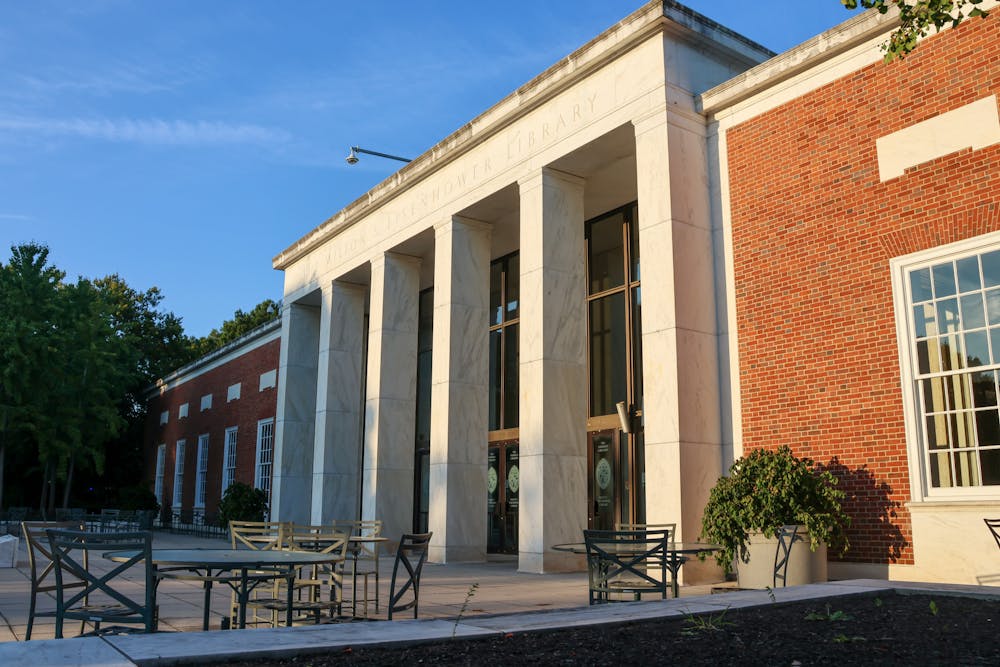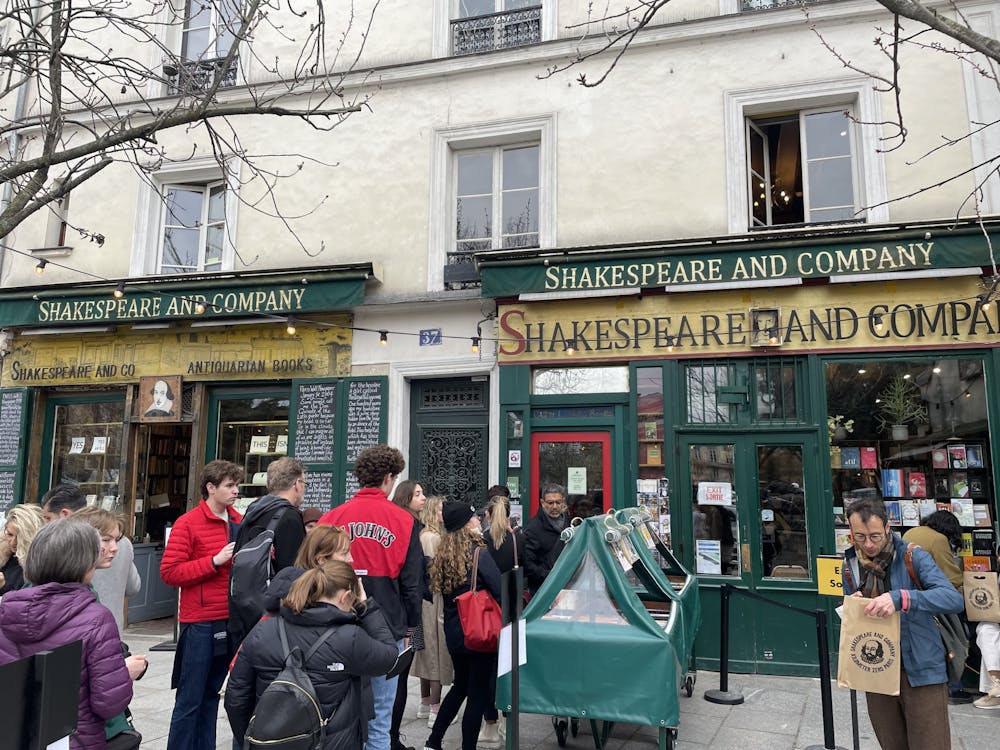The candidates for the 2024–2025 SGA Executive Board took part in a debate on Wednesday, March 6, during which they answered questions about their platforms, the expanding structure of SGA and solutions to various issues on campus.
The debate featured seven candidates who are competing for five positions. Sophomores Stone Meng and Tyler Turner are running for president. Junior Nasreen Naqvi and sophomore Amy Li are running for vice president. The remaining three positions are uncontested, with sophomore Tim Huang, freshman Buse Koldas and junior Brandon Benjamin running for chair of programming, secretary and treasurer, respectively.
During the debate, candidates were prompted to introduce their past initiatives as well as ones they plan to implement in the future, if elected.
Naqvi, who is the current president of the senate, explained that she has taken on initiatives to enhance student life, especially with respect to the Muslim community, through introducing the prayer room in Milton S. Eisenhower Library (MSE) this past semester and increasing Halal dining options. In the future, she hopes to increase SGA’s presence on campus and find alternative study spaces for students due to the closure of the MSE.
Li, who is the current student body secretary, discussed her experiences with both SGA internal reforms and broader student life programs. In terms of SGA infrastructure, Li managed the expanded SGA, which was unprecedented in size and structure. She also worked toward providing free academic resources for students, including making iClicker free. A short-term goal she has for the future is to fight for tuition reduction, as she believes that the MSE renovations will inevitably impact student life.
Meng shared a similar focus on tuition reduction, arguing that because it has been done before, during the COVID-19 pandemic, it can be done again.
“Yes, tuition reduction seems hard to obtain, but just because it is hard, are we not going to do it?” he said. “There’s no reason we can’t. The impact on student life and accessibility is insane with the constructions. We will push for tuition reduction.”
The presidential candidates also discussed their initiatives to improve dining. Turner hopes to bring back dining hall programs that allowed students to provide their dietary restrictions and request certain food options. Meng, who is part of the Dining Advisory Board, has focused on reducing the presence of undercooked chicken and increasing utensil supplies. In the future, he wishes to establish a small dining department within SGA that focuses exclusively on dining-related issues.
On the topic of the expanded SGA structure, Meng emphasized streamlining the current positions rather than adding new roles. While he recognizes that some new positions serve important functions, he finds others unnecessary. Moving forward, Meng wants to make sure that SGA positions represent more than a title on a resume and that members of SGA pursue real, tangible changes that benefit the student body.
Koldas added to the discussion by bringing up the importance of orientation for new members on both a personal and emotional level. She spoke from her experience working as co-assistant secretary, one of the newest additions to SGA.
“I feel like an organization can expand as long as the orientation of the new members is done successfully,” she said. “I remember feeling out of place, feeling lost, and I wouldn't wish that on any of the new SGA members. So I feel like something SGA has to work on is definitely orienting these new SGA members.”
An audience member questioned the creation of additional SGA roles, considering that a large number of fundamental roles, such as chief of staff, remain vacant.
Turner’s proposed solution was to reach out to more individuals and organizations to fill these roles. Additionally, he identified the heavy workload of an SGA position as a potential deterrent to applying, which Benjamin and Naqvi agreed with.
Li believes the issue of vacancy is a result of SGA’s lack of visibility and approachability. She proposed working with the President’s Cabinet and the Committee on Student Elections to do more interactive tabling on campus.
Naqvi echoed this sentiment and argued that SGA needs to be humanized. She finds the current election process lacking, claiming that it presents SGA only as a list of responsibilities and requirements without showing the candidates how SGA operates. She hopes to improve the election process by inviting candidates to join in at general body meetings (GBM).
“I hope to add a clause where candidates can join us for GBMs, so they are able to see how it is when we conduct GBMs, contribute to GBMs and really feel excited to be a part of SGA, rather than seeing it as a list of requirements,” she said. “Once SGA becomes more inviting and more of a human space on campus, more students will feel inclined to join.”
On the other hand, Meng argued that the lack of applicants is a sign of trust from the student body, as they believe in the current candidates.
“I think we've shown that we can make changes this year, compared to previous years,” he said. “A lot of us kept our campaign promises, made tangible changes. And now we're ready again, making more tangible changes as promised. So why wouldn't people choose us to make these new changes?”
Overall, the presidential candidates pledged to make SGA a more welcoming and connected environment for all members. Meng commented on the toxicity and bureaucracy he witnesses in the current SGA climate.
“I think right now with GBMs, it is quite toxic in SGA. There is a lot of bureaucracy and politics,” he said. “I will do my best to make it an environment that people want to come to and not somewhere people backstab each other.”
The candidate for treasurer, Benjamin, shed light on the current effort to rewrite the finance guidelines, which determines the process for requesting funds. He emphasized that student funding and fundraising are some of the biggest priorities in the new draft. Benjamin hopes this will ensure that students receive the resources they need.
The debate also touched on community impact. Candidates highlighted past events that have facilitated a relationship between Hopkins members and the greater Baltimore community.
Huang spoke from his past experience with Democracy Day as a First-Year Mentor, during which he observed a lack of attention from both students and University leadership. To address this gap and encourage more students to engage with the Baltimore community, he aims to host tabling sessions with ample resources that connect students to the city.
Meng’s outreach has mostly centered around the increased presence of AI on campus. He believes that the University will benefit from a new committee or organization focused on the use of AI technologies.
Turner stated that one of his primary goals is to burst the “Hopkins bubble,” which he has worked toward through reaching out to the Baltimore mayor and Maryland senators.
“We should go out into the city of Baltimore and see how we can support students in high schools and middle schools, because they are having issues as well,” he said. “It’s not just about what we can do on campus, but it’s about how we can go beyond Hopkins and help these individuals.”





